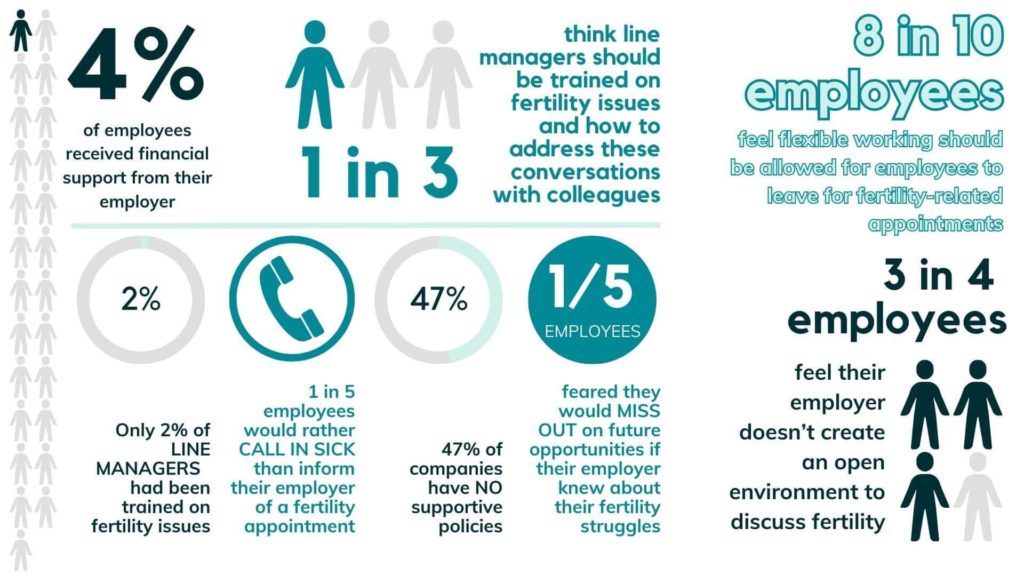A new study has confirmed polycystic ovary syndrome, commonly known as PCOS, and infertility struggles are interfering with career progression and earnings.
In fact, one in five sufferers say that having PCOS, and the symptoms associated with the condition, has negatively impacted their career progression, growth, and potential earnings, according to the latest PCOS Awareness Survey conducted by Fertility Family.
The findings also revealed that just 2% of line managers (one in 50) had been trained on fertility issues. Additionally, fertility challenges were the most impactful symptom (affecting four in five), followed by weight changes.
FERTILITY CONVERSATIONS AT WORK
A large proportion (79%) of the survey respondents felt that fertility challenges were among the most significant symptoms of PCOS. This was followed by weight changes (67%) and irregular menstrual cycle (56%). An additional survey conducted by Fertility Family earlier this year, revealed that one in five employees feared they would miss out on future opportunities if their employer knew about their fertility struggles.
The survey also revealed that around one in five employees also revealed that they would rather call in sick than inform their employer of a fertility appointment. Meanwhile, only 2% of line managers (1 in 50) had been trained on fertility issues and how to address these conversations; highlighting the importance of education in the workplace surrounding the topic.

Whilst PCOS impacts up to 10% of women of childbearing age, the survey results found that one in 10 people had to wait over five years to receive any treatment at all, whilst 7% of respondents waited over 10 years for treatment.
OPEN COMMUNICATION & SUPPORT
“It can be daunting for an employee to share details of their health, particularly with sensitive conditions like fertility, so it’s important to create a culture of open communication and support. Doing so allows employees to ask for the help they need, which in turn contributes towards increased productivity, satisfaction and retention,” stated Kate Palmer, Director of HR Advice and Consultancy at Peninsula. “Introducing mental health first aiders and/or appointing fertility or women’s health champions can be a great starting point for raising awareness about, and showing support for, those experiencing fertility struggles. Such people can be a point of contact for those who may not want to discuss this with a line manager or member of the HR team.”
Employers should also ensure that all senior members of staff are trained on how to discuss health conditions in the most effective and empathetic manner. “Managers who are not given adequate support and resources to hold such conversations may unintentionally cause more harm than good, so it’s really important that attention is given to this area,” added Palmer.
Click here to read the full copy of the report.







































